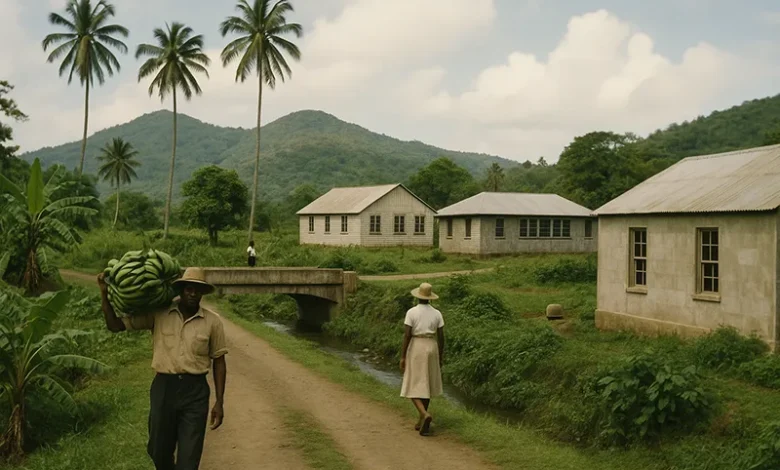Commonwealth Development Corporation (CDC)

The Commonwealth Development Corporation (CDC), initially established in 1948 as the Colonial Development Corporation by the UK government, was tasked with developing self-sustaining agricultural, industrial, and trade ventures within the poorer regions of the British Empire, including Dominica. In 1950, the CDC acquired the Castle Bruce Estate, situated in the Belle Fille Valley of Saint David Parish. This operation employed nearly the entire working population of the surrounding settlement in banana and coconut production, turning Castle Bruce into a central agricultural hub.
In Dominica, the CDC expanded its investments well outside the field of agriculture, playing a central role in energy and utility development. In 1949, the CDC initiated the country’s first hydroelectric plant, later reorganised into DOMLEC, which provided power generation and distribution under CDC ownership through the 1970s and beyond. With majority shareholdings in DOMLEC, CDC influenced the early development of energy infrastructure and economic modernisation on the island.
Impacts in Rural Development and Political Change
CDC’s management of Castle Bruce reflected both development ambitions and colonial governance challenges. By the early 1970s, rising input costs and declining banana profits prompted directives to dismiss workers. On 10 July 1972, as manager of the estate, Atherton “Athie” Martin refused to lay off 53 workers, launching the defining Castle Bruce Affair. He proposed turning the estate into a cooperative run by the workers themselves. The ensuing dispute garnered national attention and ultimately led to the formation of the Castle Bruce Farmers’ Cooperative between 1972 and 1978.
According to scholar Gabriel Christian, these events epitomised the demise of estate-based agriculture in rural Dominica and signalled the shift of ownership from CDC to worker-led cooperative models. The Castle Bruce case became a seminal episode in the history of Caribbean cooperative and agrarian reform.
The CDC’s actions followed earlier criticism in British parliamentary proceedings. For example, debates in the House of Lords in 1961 discussed CDC’s delays in approving capital expenditure for Castle Bruce, from initial application in December 1959 to authorisation in late 1960, highlighting bureaucratic inefficiencies and colonial constraints.




